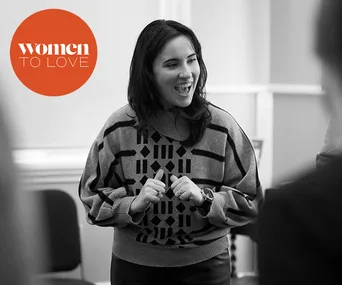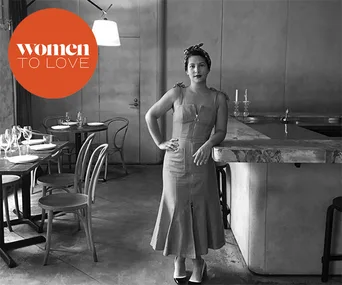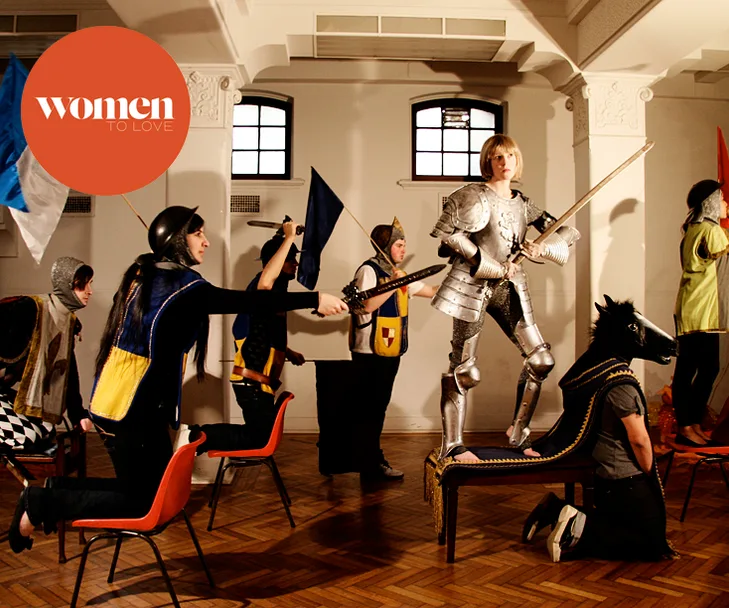The Sisters Hayes live by two life mottos: ‘More is more,’ and ‘Sometimes, designing by committee is not so bad.’
The first refers to their signature multi-medium, multi-faceted approach to their work, which covers everything from illustration, painting, set and costume design, theatre, and photography. The second refers to the fact that having too many cooks in the kitchen — or in their case, sisters in the art studio — can sometimes do wonders.
The Sisters Hayes, a creative collective, is made up of Melbourne-based siblings, Christina, Esther and Rebecca Hayes. Their sister act sprung into existence around 2010, when Esther, a costume and set designer, brought her siblings on board to help her with a project. Finding that they worked well together, and that their skillsets complemented each other (Christina, the eldest sister, is a painter and curator; Rebecca, the youngest, is in animation, design and illustration), they formed their own family band.
A little less HAIM, and a little more ‘creative powerhouse collective,’ the sisters have racked up impressive credits across Australian arts and theatre scene, including ‘Antigone’ at the Malthouse Theatre, and installastions like ‘Now You See Me’ at the Light in Winter Festival.
We caught up with the trio to talk career starts, mentors and life mottos for Women to Love.
Tell me about how you got your start as The Sisters Hayes?
Esther: I started working in theatre first doing indie projects, and sometimes it was just too much for me to do alone, so I would get Rebecca and Christina in to help me. I knew their talents and skillsets, and knew what they were capable of. We realised pretty quickly that we worked really well together as a group, and that’s when we thought we could do this as a company.
Rebecca: As The Sisters Hayes, we work in set and costume design, public art projects and exhibitions. Individually, we each own art practices — I work in animation, design and illustration; Esther is a costume designer; and Christina is a painter and curator currently based out of Dallas, Texas.
What’s it like working with your sisters every day?
R: When we first started, it was easy because we already had a family shorthand, so we can communicate easily… maybe sometimes too easily! People say that we can make decisions just by looking at each other! And because we knew each other’s skillsets, it was good to be able to ask for help and know exactly how we could help one another. Although people do say we giggle a lot.
E: And sometimes one of us will be the devil’s advocate and constantly question things, which helps us work things out.
R: We get to work a lot with each other, but our favourite thing is working with each other and other people. We love to collaborate with others.
What would you consider your most pivotal moment in your career?
E: We did a show in 2012 with Marion Potts called ‘Blood Wedding,’ and that was a big moment for us. I had been working in theatre by myself, but it was the first time The Sisters Hayes did it as a group. There was a lot of anxiety and fear in that — ‘Are people going to want to work with me separately again? Are we able to do a big, main stage production? Can we pull this off?’—but we worked so well together and that’s when we thought, ‘Hey, we can really do this.’
R: ‘Blood Wedding’ was the show that gave us the validity we needed to show we could take this on.
What about your proudest moment?
R: ‘A Good Death’ was the project we worked on all the way from our initial ideas to completion, and that was a huge step forward for us. We made that on a dime. We did have a grant, but we made a lot of it happen by bringing on friends, and working late, and really doing the hard yards. We did the costumes, sets, animations, Christina’s paintings… we all worked together and overlapped, and that was wonderful.
If you could go back in time and give your 13-year-old self one piece of advice, what would it be?
E: Don’t stress so much. When you’re young, you think everyone has it together, but everyone goes through similar things; everyone has the same worries and anxieties. Every time I get older or I advance in my career, it gets better. You relax more into who you are, you stop trying to be someone else, you get more comfortable. So, don’t stress. And be nicer to your sisters!
R: Don’t have a fear about talking about your ideas. When you’re working in the arts, you’re always thinking, ‘Is this something people want to see? Is this something people want to hear?’ But putting things out there is the first step. It’s okay if it’s not in fashion or trendy at the moment – as long as it’s what you want.
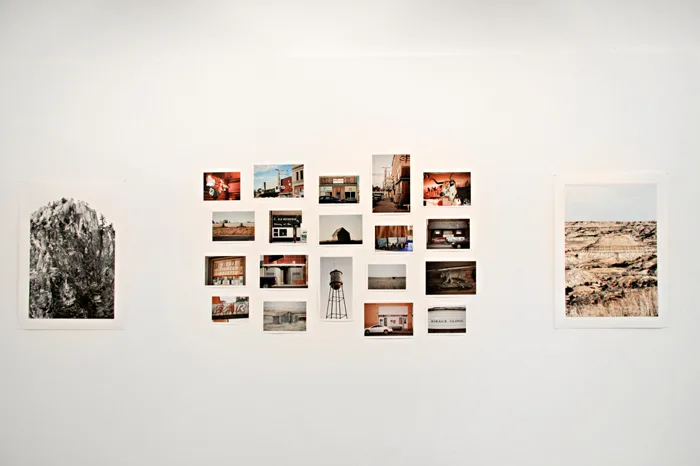
Have you made any mistakes over the years?
E: Earlier in my career, I said yes to everything. When you’re under a lot of pressure and demand, you say, ‘Yes, yes, yes,’ to everything and then you end up killing yourself to get it done. I wish I hadn’t done that. But as you get more experienced and confident, you’re able to communicate your side better and put your foot down more.
R: Mine is similar. When I teach at university, I tell my students this all the time: people will only take you as seriously as you present yourself. You have to know what you’re worth, and know your own value. That’s something I wish I knew earlier.
How do you think your industry should adapt and change going forward?
E: I think the industry is adapting and changing already. People are speaking up about the industry, against things like bullying, sexual harassment, sexism, and really working to make it a safer work place. That wasn’t there a couple of years ago, so it’s changed a lot and hopefully it keeps changing more.
R: I think we’re seeing a lot more diversity in the work that’s being produced. The show we just did is by an Asian-Australian playwright, Michelle Lee; there are actors who are telling non-mainstream stories, and more diverse talent being introduced. I think it’s cool that you can go down to the theatre or the comedy club and see different people with different backgrounds and different stories.
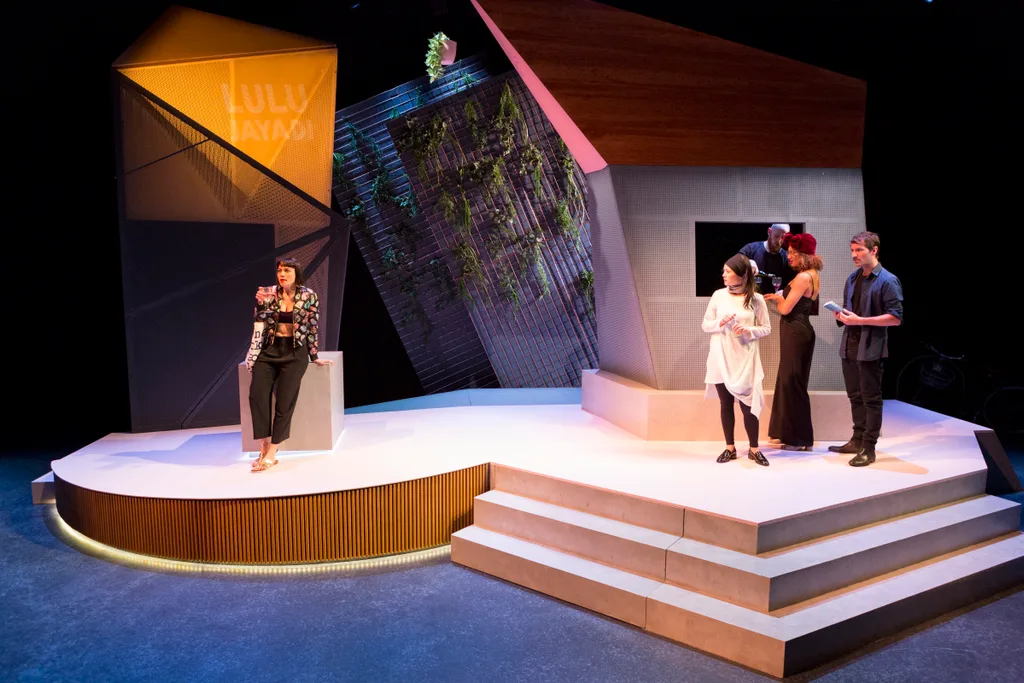
Have you experienced instances of sexism over the years?
R: Yes, but I find it’s more casual, like microaggressions. Five or six years ago, you might have been the only woman in the room and that affected the way people treated you. A lot of it is in the language—people referring to you as “girls,” dismissing you quickly. But that’s why it’s so important to have more women in the room, and really have a bigger presence. What’s appropriate and what’s inappropriate becomes more clear.
Who has been your biggest champion or mentor?
R: We’ve had quite a few people that we would consider mentors who have helped us at different phases of our career. Right now, we’ve got a friend, Martha McDonald, who is an American artist, and she really taught us to put our ideas out there.
E: She’s very multi-disciplinary and she works across so many different mediums, and she was a huge inspiration to us because she showed us we can work on different things, play to different audiences, and don’t have to define ourselves.

